Looe Bimble

Beez Neez now Chy Whella
Big Bear and Pepe Millard
Fri 13 Jul 2018 22:27
|
A Bimble about in Looe, Cornwall with The
Scotties 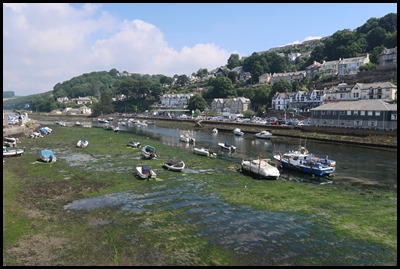 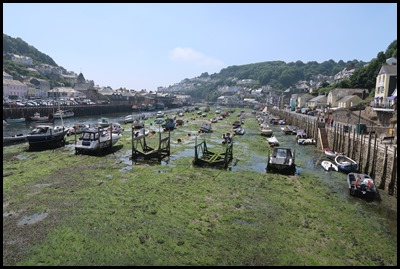 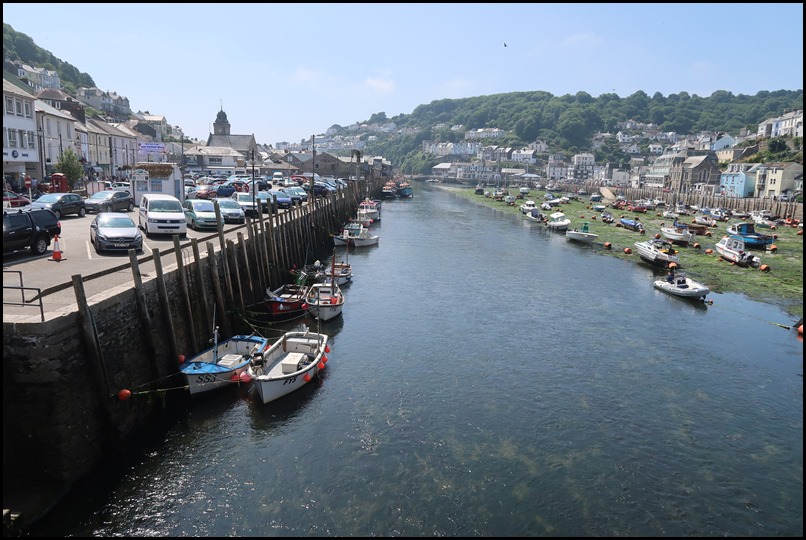 This morning we started a tiny tour of
Cornwall with Looe. After parking we bimbled over the bridge, too in the typical
scenery and headed toward the beach.
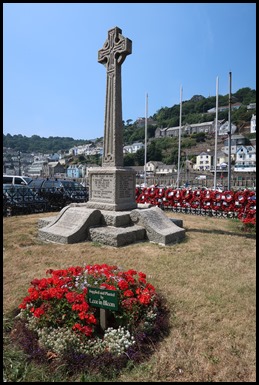 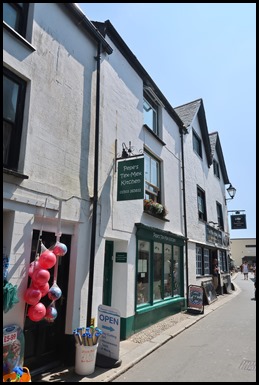 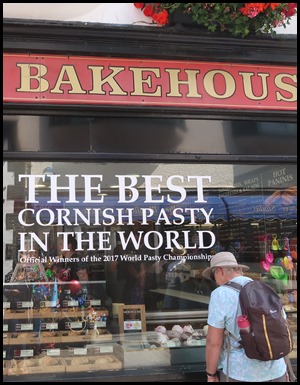 We passed the War
Memorial, and on the High Street – Pepe’s
Tex-Mex Kitchen and Chris took in the variety of
pasties in the window of ‘Official Winners of the 2017 World Pasty
Championships......
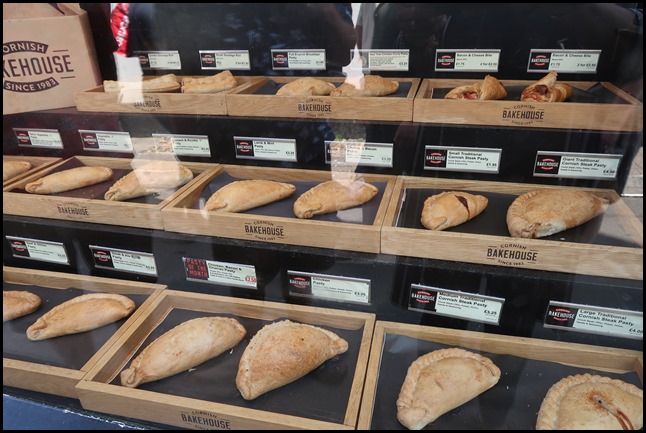 ........and what a
selection, aroma divine.
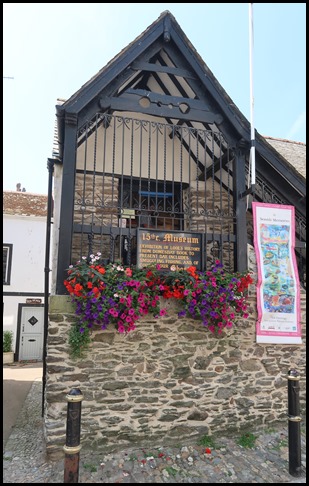 The lovely little 15th
Century Museum.
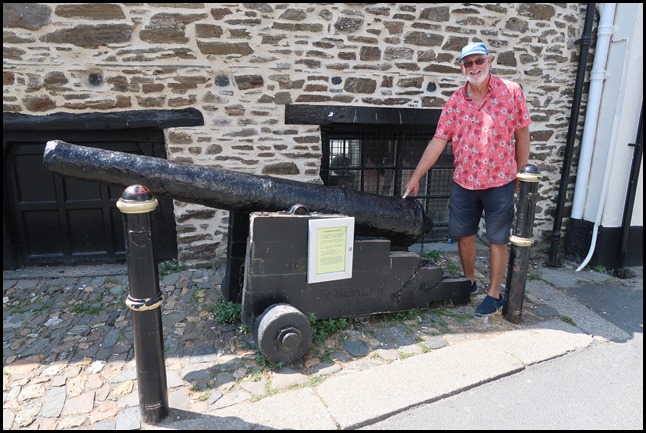 The Finbaker
Cannon: This gun was “fished” out of Looe Bay during the last
century. It is believed to have belonged to a Seventeenth Century Swedish
warship. Finbaker (pronounced Finbacker) was the name of a popular type of
cannon of the period. For many years the gun was used, upended, as a bollard on
the old quay. Before that it was thought that it was one of the six guns which
stood on the seafront during the Napoleonic wars to scare off the
French.
The barrel weighs half a ton. The
carriage is modern, built by a local craftsman, George Whitehead, to an old
design researched by local historian, Bernie Doyle, who built the model of “The
George” in the museum.
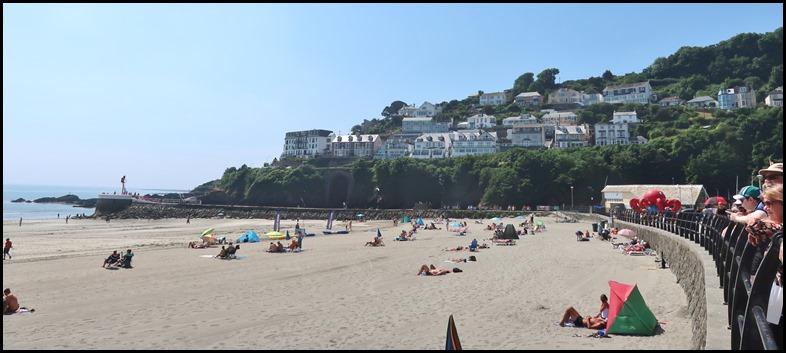 Nice to see that despite being off-season,
there were quite a few on the sandy
beach.
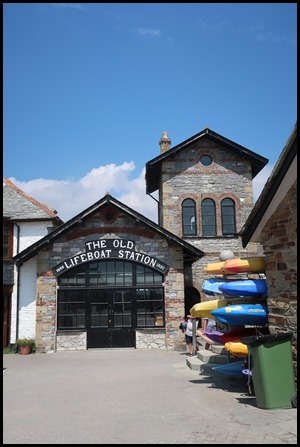 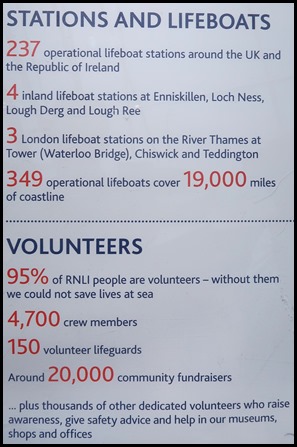 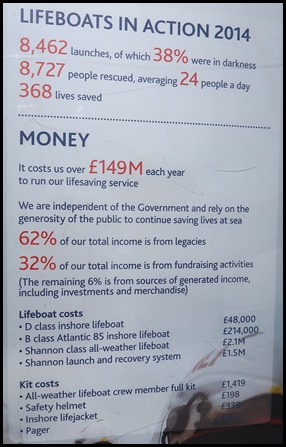 We went round the corner, passing The Old Lifeboat Station to the current Station where we
saw amazing facts and figures of the RNLI (Royal
National Lifeboat Institution).
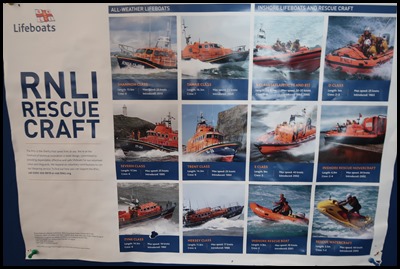 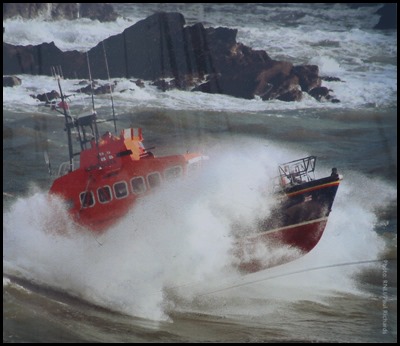 On the wall was a poster showing all the
different classes of rescue craft and the impressive
Tamar Class taking a big wave.
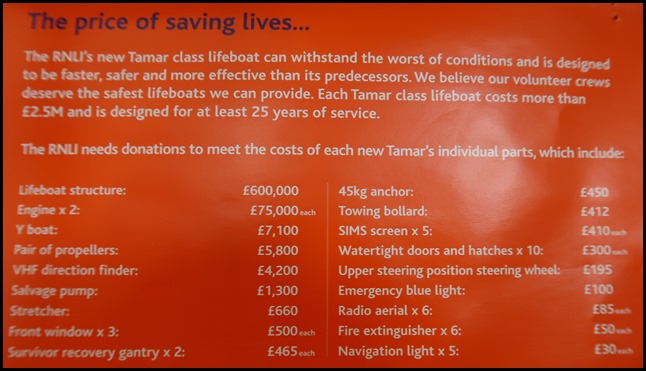 The costs of running
this important service are huge, the Tamar Class above costing two and a
half million pounds to build and kit out.
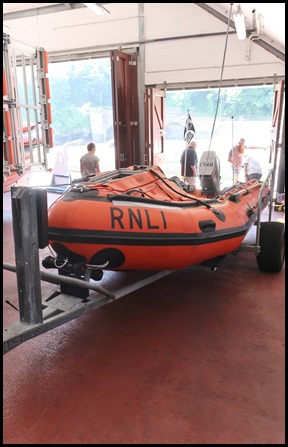 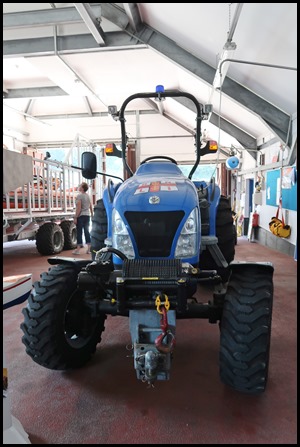 To the left as we entered was this pairing,
a small working girl and her
steed.
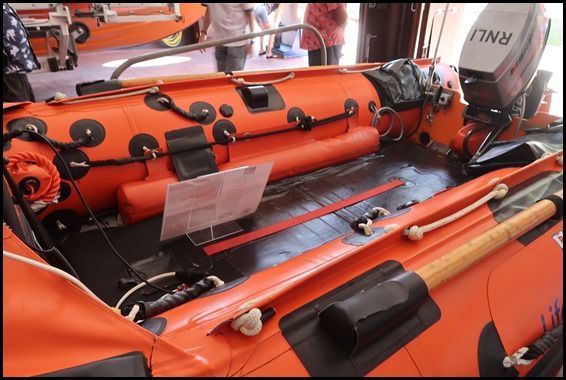 ‘D’ Class Inflatable Lifeboat. D 741
‘Ollie Naismith’ entered service November 2010. An inflatable lifeboat first
developed at the RNLI Inshore Centre in 1963, the class has continually evolved.
Powered by a single 50hp immersion-proof engine it has a maximum speed of 25
knots with a duration of 3 hours. It carries a crew of 2 or 3, with a survivor
capacity of 5.
Length: 5m. Beam: 2m. Displacement:
400kg. Construction: Hypalon-coated polyester. Sponsons have 7
compartments.
Equipment includes VHF radio, night
vision equipment, satellite navigation, oars, kedge anchor & towing lines,
stopwatch & binoculars, first-aid and oxygen kit, spare life-jackets,
stretcher & casualty protection gear, spare propeller, radio mast, flares,
fire extinguisher, torch, knives &tools.
Replacement cost
£41,000.
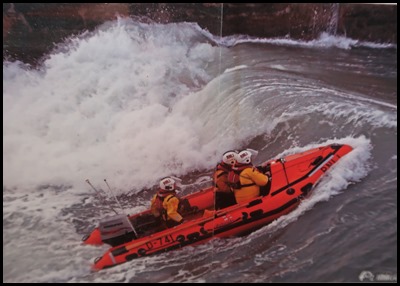  ‘Ollie Naismith’ in
action.
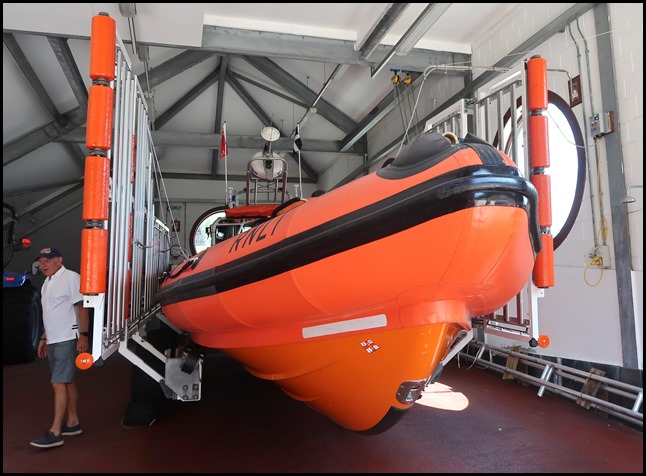 On the right of the Station, an impressive
steed called Sheila and Dennis Tongue II, an
Atlantic 85 ‘B’ Class Inshore Lifeboat. In service at Looe Lifeboat Station
since September 2016. A rigid inflatable lifeboat developed at the RNLI Inshore
Centre at Cowes in 2005. Powered by twin 115hp 4-stroke immersion-proof engines
it has a maximum speed of 35 knots with a duration of 2.5 hours (fuel capacity
210 litres). It carries a crew of four
seated by the central console. Equipment includes VHF radio, GRP chart plotter,
first-aid and oxygen kit.
Length:8.44. Beam: 2.85m. Draught:
0.53m. Displacement: 1.8 tonnes.
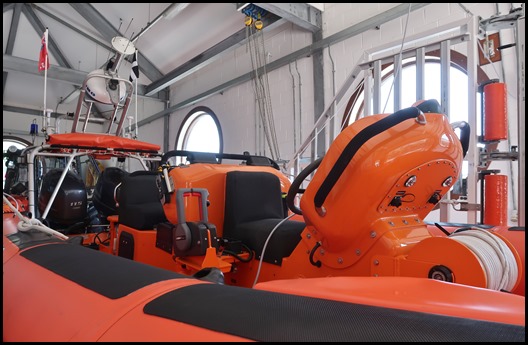 Construction: Hull – carbon fibre and foam core laminate,
structure includes epoxy glass and foam sandwich layup. Inflatable collar –
hypalon-coated nylon. Survivor capacity: 20.
Replacement cost
£214,000.
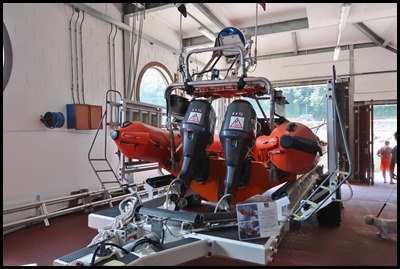 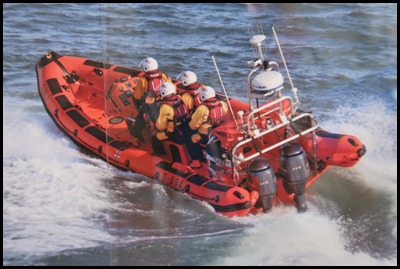 We wandered to the rear of the Station and
the Sheila and Dennis Tongue II on the wall was a picture of this incredible
craft in action.
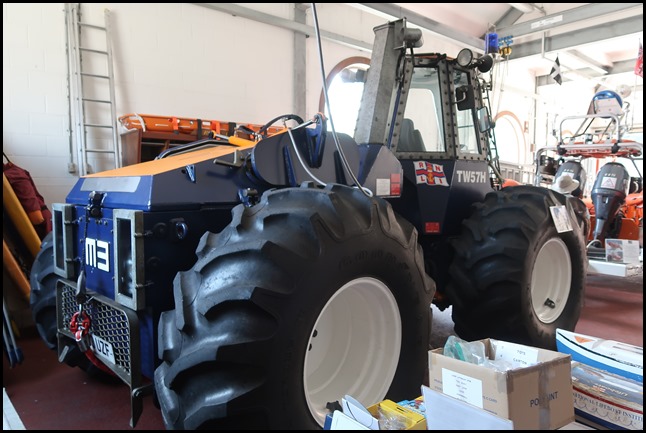 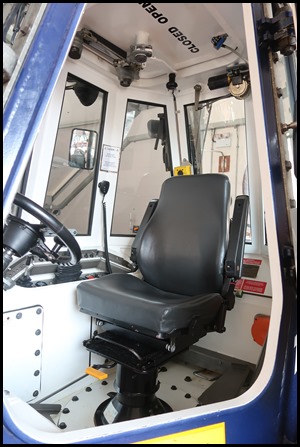 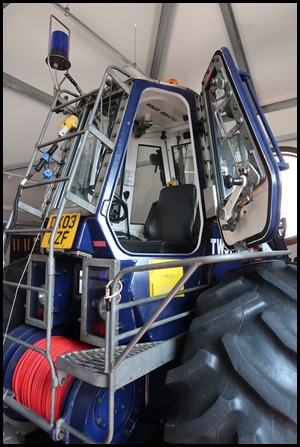 At the back, an even more incredible beast.
Talus MB-4H Tractor. Jointly developed
by RNLI & Clayton Engineering Ltd, of Knighton, Powys. First tractor on
station in 1990 (New Brighton).
Can be safely operated to a depth of
1.6m in level sea conditions. Weight: 9.38 tonnes. Propulsion: 4 wheel drive.
Engine: Caterpillar 3114, 4 cylinder, 105hp- Diesel Turbo. Max. Speed: 22mph.
Winch Wire Pull: 5 tonnes.
In the event of the machine getting
into difficulties it can be battened down and left on the sea bed and recovered
at low tide. The cab is specially designed to fully flood in order to provide
stability, when submerged
Cost £250,000.
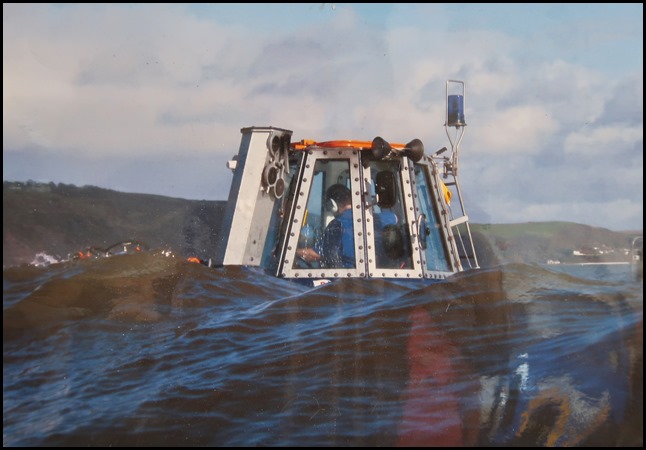 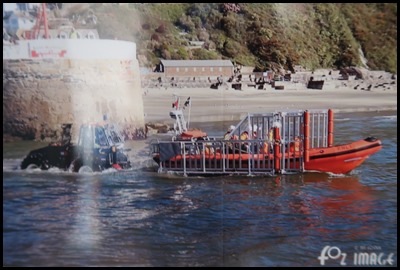  More incredible ‘in
action’ shots.
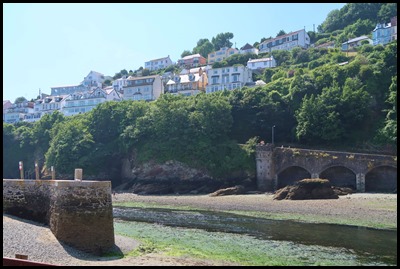 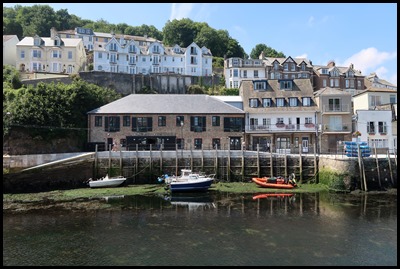 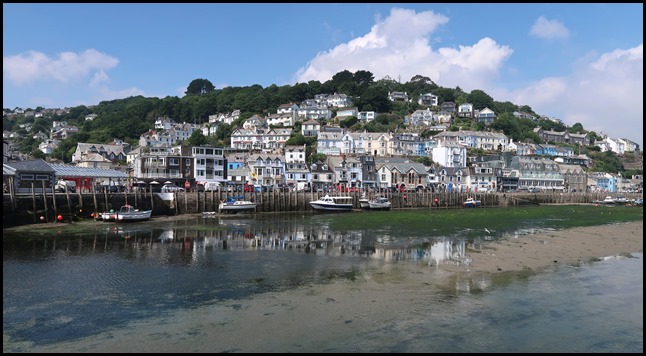 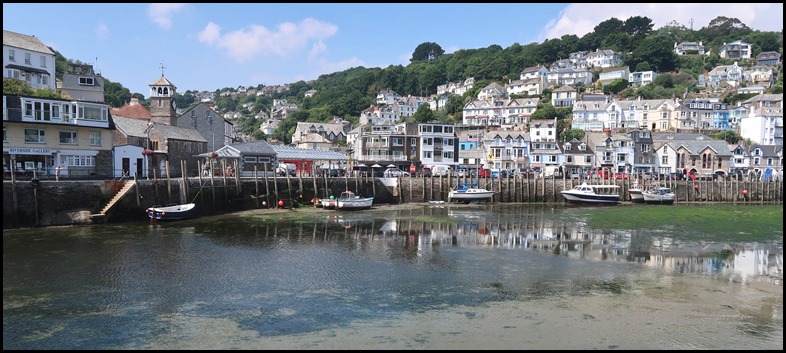 On our way back to the car we took some
more pictures of the very, very photogenic
Looe.
ALL IN ALL LOOE REMAINS A VERY
PICTURESQUE LITTLE TOWN
NICE TO SEE THE
CHANGES |